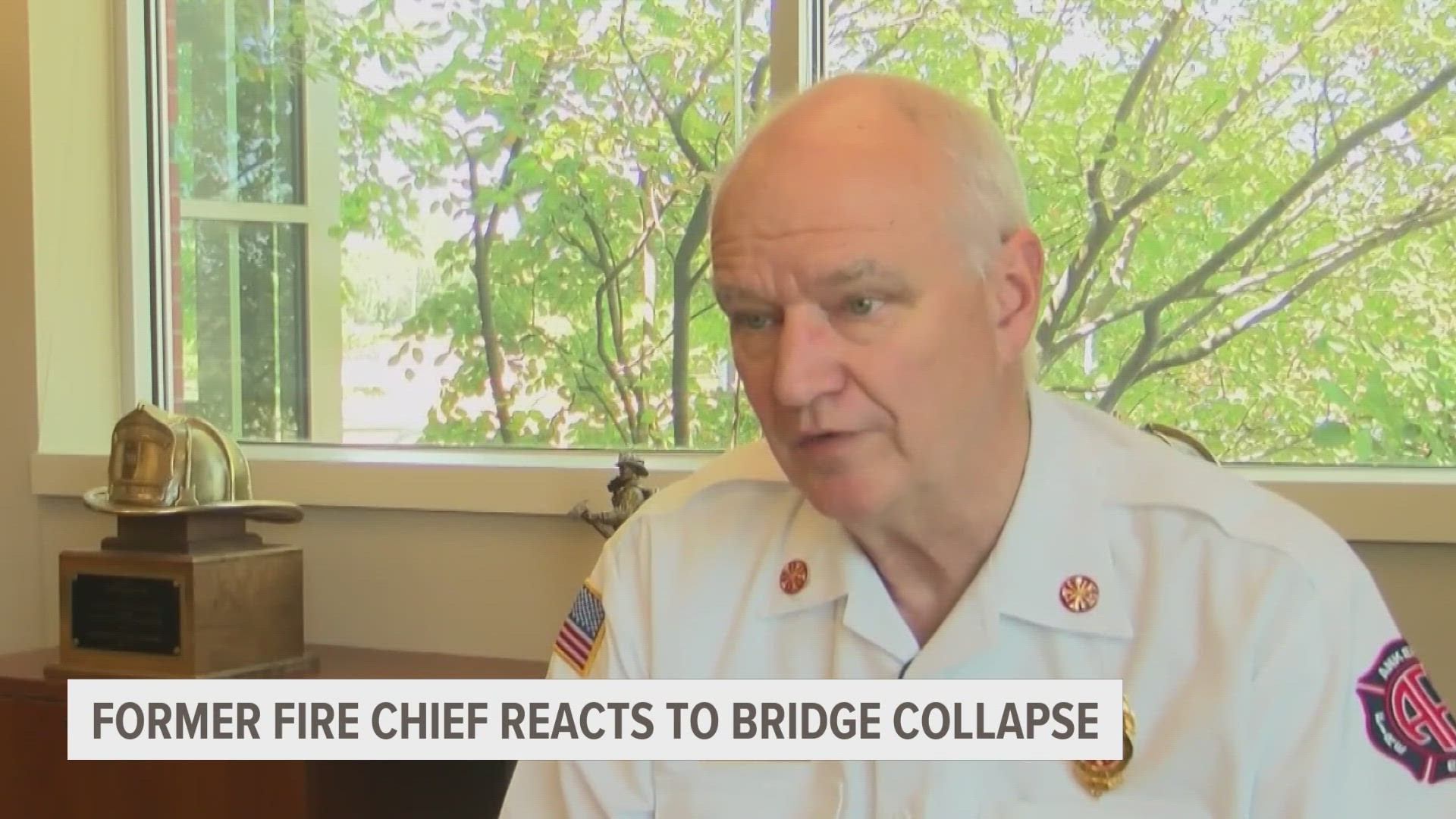DES MOINES, Iowa — When James Clack learned that Baltimore's Francis Scott Key bridge collapsed Tuesday, memories of a similar disaster from earlier in his career came flooding in.
Clack retired from his role as the Ankeny Fire Department Chief in 2023, but before he came to Iowa, Clack spent over two decades as a fire chief in Minneapolis.
On Aug. 1, 2007, he and his wife had dinner reservations to celebrate their wedding anniversary, but those plans were interrupted. Just after 6 p.m., Clack was dispatched to respond after the Interstate 35W bridge in Minneapolis collapsed into the Mississippi River.
“Most firefighters don't plan on a bridge collapse. We do think about structure collapse all the time, technical rescue, but not a bridge collapse," he told Local 5.
Since that day, Clack has thought about that bridge collapse, in which 13 people died and over 100 were injured, quite often.
The circumstances surrounding those in Baltimore are different than the incident in Minneapolis, but he says the difficulty of responding to these situations for first responders is the same.
"It takes training to be able to work on top of the water and under the water," Clack said. "Thankfully, Baltimore Fire has fire boats, they have underwater sonar, they have a dive team, they've got a lot of resources that a lot of places don't have."
He knows these details about the Baltimore Fire Department because he used to be one of them. Clack left Minneapolis for the chief job there in 2008, a role he filled until 2013.
With his knowledge of the city, he told Local 5 that the recovery process would be long. Re-routing traffic after an incident of this magnitude is difficult for local agencies, and the bridge could take years to rebuild.
"The impact this has on the families and the wider community, this is gonna be a long-term recovery," Clack said. "First responders and city leaders are already looking at tomorrow and next week, and next month, and next year, to try and make the recovery more successful."

